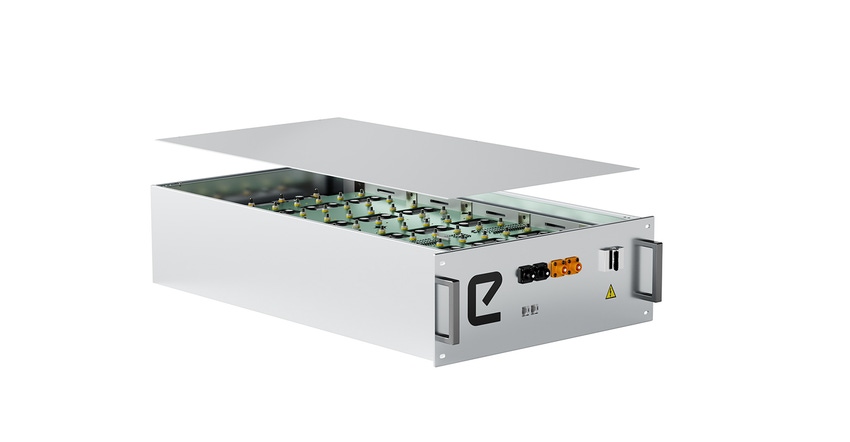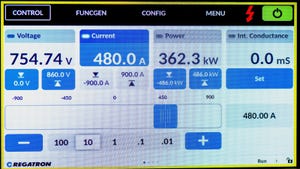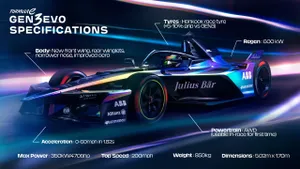How Zinc-Ion Batteries Power a Cleaner Energy Future
Learn how Enerpoly's zinc-ion batteries transform energy storage in an exclusive interview with CSO and co-founder Samer Nameer, discussing safety, sustainability, and cost advantages.

The spotlight is increasingly turning to advanced energy storage technologies in our quest for cleaner energy. Zinc-ion batteries have emerged as a beacon of hope, promising many advantages that could revolutionize how we store and utilize energy. In this exclusive interview with Enerpoly’s CSO and co-founder, Samer Nameer, we explore the groundbreaking technology behind Enerpoly's zinc-ion batteries and how these innovations are poised to reshape the energy landscape. From enhanced safety to recyclability and affordability, discover the key factors that set Enerpoly apart and signal a greener, more sustainable future for energy storage.

Can you explain the key technological advancements that make Enerpoly’s zinc-ion batteries suitable for large-scale stationary applications compared to other battery chemistries?
Nameer: Enerpoly's patented zinc-ion battery technology delivers an affordable, rechargeable, and safe solution for stationary energy storage. It builds upon the well-known zinc-manganese dioxide chemistry that has dominated the primary battery industry for over half a century. We've taken the integral properties of this chemistry—simplicity, reliability, and cost-effectiveness—and our research breakthroughs to have translated these advantages for a rechargeable solution. Our innovation centers on using zinc metal as the anode, manganese dioxide as the cathode, and a water-based electrolyte, with the zinc-ion playing a pivotal role in enabling reusability.
Lithium batteries dominate the industry but face challenges related to their safety, sustainability, and availability. Due to their thermal runway, lithium batteries are flammable and thus pose significant safety risks. Lithium batteries are currently non-recyclable, and lithium reserves are concentrated in a few countries, which disrupts their supply chain and leads to price volatility.
In contrast, using water-based components, our zinc-ion batteries are safe, being non-flammable, non-toxic, and non-explosive, allowing our batteries to be used in places where safety is a concern, such as urban-dense areas or maritime applications. Additionally, the materials used reduce the need for safety-related precautions in manufacturing, which reduces energy used in production and significantly lowers our carbon impact by up to 80% compared to conventional batteries.
As well as prioritizing safety, our batteries have been engineered to be fully recyclable at end-of-life, minimizing their carbon footprint and aligning with our commitment to sustainable practices. Due to the abundance, availability, and reusability of our materials, we can produce batteries estimated to cost 35% less than typical energy storage solutions over their lifetimes.
Enerpoly’s batteries are ideal for grid-scale storage with 2 to 10-hour discharge durations, meaning the batteries can meet a range of large-scale, stationary energy storage needs, including supporting the grid, providing backup power, and commercial standby.
Are there any recycling or reuse programs for Enerpoly’s batteries to reduce electronic waste in the industry?
Nameer: We are committed to building the most sustainable batteries possible. As part of our strategy, we prioritize using materials and components already known to be recyclable within today’s infrastructure. For example, 60% of available zinc at the end of life is estimated to be recovered and recycled.
While we don’t currently have ongoing recycling or reuse programs, we are actively working towards launching such initiatives shortly to minimize our electronic waste. We will form partnerships and collaborate with existing battery recycling companies to integrate our technology into current recycling infrastructure rather than build new recycling facilities as our technology fits into existing alkaline battery recycling mechanisms.
What is the expected lifespan and cycle life of Enerpoly’s zinc-ion batteries? Can you share examples or case studies of successful deployments of Enerpoly batteries in large-scale stationary applications?
Nameer: The technology has managed up to 2000 charge cycles in our tests. This is a significant advancement compared to traditional zinc-ion batteries, which typically manage about 50 cycles. Regarding work being done with customers, Enerpoly is currently collaborating with battery integrators, such as Polarium and EET, to develop the zinc-ion battery product. Polarium's expertise is in telecom battery backup, and EET's energy storage system is utilized in residences. Enerpoly is also in discussion with grid-scale players who see a fit for the zinc-ion technology, presenting the opportunity for practical implementation in various end-use applications.
What specific markets and industries is Enerpoly targeting, and what factors make these markets attractive? Are there any upcoming product releases or innovations we should know?
Nameer: Enerpoly targets the stationary energy storage market, specifically commercial, industrial, grid, and household applications. We developed our zinc-ion battery technology with one aim: to help provide everyone with clean energy access. Our batteries are versatile with a range of potential uses, making them well-suited for the growing stationary energy storage market.
Recent government policies like the EU’s Green Deal Industrial Act and the US Inflation Reduction Act provide incentives for domestic battery production using non-critical minerals. Since it is plentiful and responsibly mined with relatively low and stable prices, zinc is a material of note. Countries globally are eager to gain energy independence through storage, and zinc is an ideal alternative as it can be locally sourced in Europe and Sweden, unlike lithium.
To help bring our batteries to market, Enerpoly is opening a new battery manufacturing plant called the ‘Process Innovation Centre’ in Stockholm in the coming months. Our proprietary technology is central to producing batteries that meet storage demand. We aim to be a leader in energy storage solutions and help Europe and the world gain autonomy in clean energy storage and supply chains.
How do you see the role of zinc-ion batteries evolving in the energy landscape over the next decade?
Nameer: The next decade will be crucial for sustainable battery innovation, transforming the energy landscape, and getting the world closer to using 100% clean energy. Over the next ten years, technologies like zinc-ion will provide more affordable, scalable, and geopolitically stable energy storage options as numerous companies like Enerpoly invest time and money into developing various battery technologies.
One area of focus for us will be working to improve the cycle life and energy density of zinc batteries. Higher energy densities will allow zinc-ion batteries to store more energy for more extended periods of time. At the same time, improved cycle life will increase their lifespan and reduce the need for replacement. Research developments in this area will see zinc-ion batteries used in the stationary storage market that is still being developed today, becoming one key technology in enabling 100% renewable energy.
These advancements will enable zinc-ion batteries to have use cases beyond grid storage and backup power, which could increase their use in motive power, such as battery backup for electric vehicle charging. As technology progresses, zinc-ion's sustainability, safety, and cost advantages will cement its role as a crucial player in energy storage alternatives.
With these developments on the horizon, zinc-ion batteries can enable a greener, more sustainable future as society transitions to renewable energy. By providing affordable energy storage, zinc-ion batteries can help alleviate the high demand and rising energy costs through increased demand for renewable energy storage, resulting in more resilient power grids - something we should prioritize today.
About the Author(s)
You May Also Like





